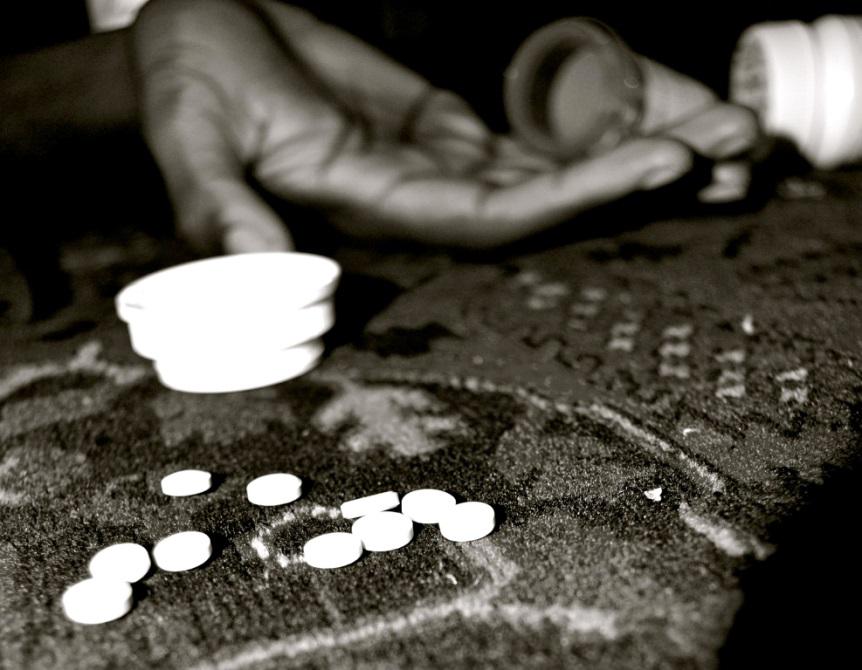Understanding the Complex Relationship between Substance Abuse and Crime

A large number of people harbor the notion that criminal behavior and substance abuse are interrelated, and that those who commit crimes such as theft and burglary, do so to procure money to buy drugs.
This often-lethal combination has ruined the lives of entire families. Preventing this and/or dealing with this can be challenging, but not impossible, especially once you understand how the two are related.
According to the National Council on Alcoholism and Drug Dependence, “The connection between alcohol, drugs and crime is clear. And, so is the connection between alcohol and drug addiction and crime.”
Criminal acts resulting from substance abuse include activities like driving under the influence of drugs or alcohol, violence, robbery, assault, rape and prostitution. Manufacturing and possessing illegal drugs (such as methamphetamine or cannabis) with the intent of distributing them, and using such drugs are also punishable by the law.
Too many people end up in prison, wasting their lives because of committing crimes related to substance abuse. In order to curb such crimes, we need to understand the connection between substance abuse and crime.
The relationship between the two, however, is a complex one. Two questions that immediately spring up here are:
- Is it the drugs and alcohol that lead to crime or is it the other way round?
- Are people who do not use drugs and alcohol not capable of committing crimes such as theft or assault?
It would be unfair to say that all drug and alcohol users are addicts. Most of them tend to grow out of it rather than get hooked on to them. There are, however, a number of people who do indulge in the overuse of these substances and commit crimes, thereby creating a link between the two.
One of the main reasons for this could be that by abusing substances, the user develops a decreased perception of social support and a smaller social network. There are several other sociological factors such as family, employment, lifestyle, marital status and mental health at play as well. Examining these factors is important to understand why people turn to drugs or alcohol and engage in criminal activities.
Reasons for Substance Abuse
The use and abuse of substances such as drugs, alcohol and cigarettes, typically, tends to begin in the pre-adolescent and the teenage years. Some people may be more prone to addiction to these substances than others.
Some of the main causes of substance abuse, particularly among the youth, include:
1. Curiosity
Curiosity can be extremely dangerous as far as experimenting with drugs and alcohol is concerned. Several teens are given a higher degree of freedom than they did as children. They may take undue advantage of this and dabble in drugs and alcohol to experience what it is like to get “high,” and ultimately end up getting addicted.
2. Family History
Children with a family history of substance abuse tend to follow in the same steps because that’s what they learn to consider normal. They often tend to imitate their parents and end up getting abusing substances in the process. This does not apply to all the kids with such a family history. Some children do the opposite and avoid substances like a plague in order to not end up like their parents.
3. Peer Pressure
Peer pressure and insecurity can get the better of teens, which may lead them to use drugs and alcohol. Some have a tough time saying “no” as they believe it could lead to distressing consequences such as being laughed at, teased, humiliated, ostracized, and bullied.
4. Boredom
Sometimes boredom can lead to teens downing a beer or two when with friends or alone, eventually leading to a full-fledged addiction. This is more likely to happen in homes where alcohol is easily accessible.
5. Self-Medication
Teenagers who grapple with emotional issues are highly vulnerable to substance abuse. They use substances to make themselves feel better by consuming substances that will numb/ease their pain, even if it is temporary. This is also applicable to teens struggling with low self-esteem.
Consequences of Substance Abuse
Substance abuse has no positive effect, but it does have a host of adverse effects.
• Physical Health
Driving under the influence of substances can result in accidents, physical disabilities and diseases. Youth who indulge in such behavior are at a higher risk of death through accident, homicide, suicide, and illnesses.
Further, youth who abuse substances also tend to participate in sexual activity at an early age, which can lead to unprotected sex with multiple partners. This increases the risk of contracting (and passing on) the HIV virus, which causes AIDS and other sexually transmitted diseases.
Apart from that, it is also responsible for damage to the liver, the brain, the heart, and the reproductive system, among other organs.
• Mental Health
Aside from ruining the cognitive development, substance abuse also gives rise to other mental health issues such as depression, behavioral problems, personality disorders, developmental delays, social withdrawal, thoughts of and attempts at suicide, and other psychosocial problems.
Overuse of drugs such as marijuana can lead to short-term memory loss, poor learning and psychomotor skills. It can also stall the emotional development.
• Social Issues
The families of youth who abuse substance are more likely to find themselves in family crisis, which may result in family dysfunction. Substance abuse can drain a family of their financial and emotional resources. This can, in turn, give rise to alcohol and drug-related crime.
• Legal Consequences
The legal implications of substance abuse can vary from state to state. The penalties include spending a lifetime (or several years) in jail and/or hefty fines. Other implications include the establishment of a criminal record and confiscation or non-issuance of the driver’s license.
Having a criminal record can brand the substance abuser a criminal and can ruin his career as no employer would want to hire a criminal. This can also take a toll on his personal life and bar him from entering several countries.
If you or your family member has been charged with criminal activities, be sure to contact an experienced criminal defense attorney from your area at the earliest. If you’re a resident of Joliet, for instance, get in touch with a skilled criminal defense lawyer in Joliet, who can help you fend off those charges.
Conclusion
One of the best ways to deal with and curb incidents of substance abuse-related crime is to understand how these factors influence each other. As complex as this may be, doing so is important. While a lawyer can be your best ally if you’ve been charged with such a crime, it is also important to keep the bigger picture in mind and figure how you can prevent it. The above tips should give you an insight on how both these factors are associated.











